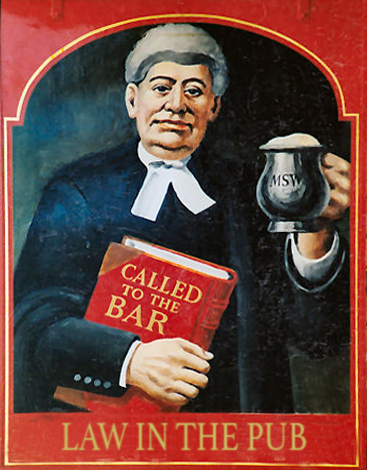Law in the Pub
Law in the era of the migrant
Wednesday October 18, 7pm - 9pm
(Doors 6:30pm)
Lawyers from the ANU College of Law look at the problematic of migration through different theoretical lensesQuestions of migration and citizenship have become so prominent that not a week passes without a new heated legal controversy surrounding the regulation of the lives of migrants. The desire to tell who can and who cannot fully participate in the political and legal community has recently touched even the MPs whose double citizenship cast a shadow on their eligibility to represent other Australians. Join us to meet lawyers from the ANU College of Law who look at the problematic of migration through different theoretical lenses. Find out not only what law regulates but firstly why it chooses to regulate more and more aspects of belonging.
Professor Desmond Manderson is Director of the Centre for Law, Arts, and Humanities at the ANU and a leading global expert on law, ethics, and aesthetics.
Topic: The asylum ‘problem’ problem. The asylum problem is like the drug problem. Just like the drug ‘problem,’ the asylum or refugee ‘problem’ is blighted by inflated rhetoric and false assumptions. But in drug policy, things are changing. The shift from “zero tolerance” to “harm reduction” has heralded a sea change in policy and in political discourse. Harm reduction strategies suggest a new model for how to rethink a policy agenda that is by any measure failing badly. What does the story of Australian drug policy teach us? What would a harm reduction approach to asylum-seekers look like? And how can we get there from here?
Professor Margaret Thornton is a Professor of Law & Public Policy Fellow at the ANU. She has degrees from the Universities of Sydney, New South Wales & Yale. She is a Fellow of the Academy of Social Sciences in Australia & a Foundation Fellow of the Australian Academy of Law.
Topic: Is Australia a multicultural or a monocultural society? The problem of dual citizenship. This presentation will tackle the contemporary controversy of the MPs holding dual citizenship and explore in the light of Australian multiculturalism.
Dr Dorota Gozdecka is a Senior Lecturer at the ANU and an Adjunct Professor at the University of Helsinki. She has published books and journal articles on theoretical aspects of accommodating cultural diversity and has been preoccupied with the place of the other in philosophy and legal theory.
Topic: Why the visual and the legal are entertwined – how we are viewing a figure of a migrant. This presentation will explain how images and our sense of legal justice are intertwined. It will question the dominant images of migrants used by media and the authorities and interrogate the frames and the gaze they impose.
Anne Macduff is a Senior Lecturer at the ANU College of Law. Anne’s research explores issues of law and identity, particularly raced and gendered identities. Anne draws on a range of critical theories, including feminist, postcolonial and queer theories to generate insights into variety of areas of law, including Family Law and Citizenship Law. She has just completed a thesis called ‘Advance Australia Fair? Race, Citizenship and the Law in Contemporary Australia’. In her spare time, Anne likes to drink coffee, ride horses, and listen to music. But not all at once.
Topic: ‘The Ideal Citizen: Understanding Racialised Barriers to Belonging in Australian Law.
This presentation argues that history is repeating itself, although with a twist. The White Australia policy has resurfaced, this time being fuelled by Australia’s contemporary citizenship laws. These laws create two figures: the ‘ideal citizen’ and the internal foreigner. Tracing how these figures circulate in Australian contemporary society suggest that Australia’s democratic and egalitarian credentials have now been significantly undermined.
Justine Poon (@juselk) is a PhD candidate at the ANU College of Law and occasional poet. She was an ANU finalist for the 2016 Three-Minute Thesis competition with her topic, "How a Body Becomes a Boat". Her creative writing on law is currently being featured at the Australian Centre for Contemporary Art's Greater Together exhibition in Melbourne.
Topic: What do the escapist fantasies of going to Mars and law have to do with the land? How does Plato's longing for the dead Socrates represent a challenge to law's myopic conception of time? What's love got to do with it? Justine will present a poetic meditation on these themes with a view to haunting and possessing law with all that it traditionally excludes.



